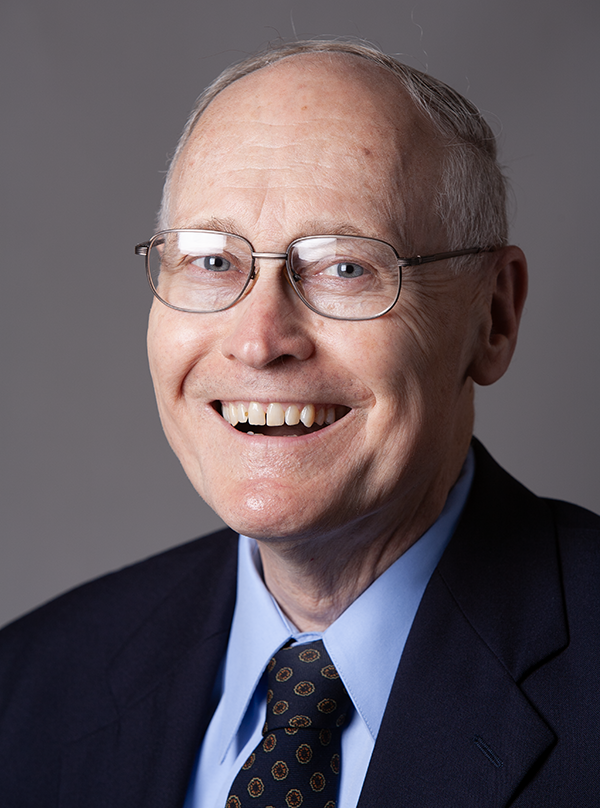William Tomek, innovator of ag commodity forecasting, dies at 91
By Krisy Gashler
William Tomek, a professor emeritus in the Charles H. Dyson School of Applied Economics and Management, died March 3 in Ithaca, New York. He was 91.
Tomek’s innovations in econometric analysis improved forecasting of agricultural commodity prices. These forecasts helped farmers, governments and international organizations understand the effects of market shocks, like natural disasters and price fluctuations in other markets, on current and future agricultural prices. These insights helped support growers’ livelihoods and protect food security.
“Bill was one of the most famous agricultural economists in the nation. He served as both president of the American Agricultural Economics Association and editor of its flagship journal, the American Journal of Agricultural Economics,” said Harry Kaiser, the Gellert Family Professor of Applied Economics and Management in the Dyson School. “While he was highly esteemed, he was also the most genuine and approachable person to all students, faculty and the public.”
Tomek’s research centered on the economic roles of agricultural futures pricing. He developed new analytical strategies to improve commodity forecasting and studied how varying levels of information available to different actors impacted contract pricing. His most-cited paper on this topic was recognized as a “publication of enduring quality” by the Agricultural & Applied Economics Association in 1989, almost 20 years after its initial publication. In 1989, he was named a fellow of the American Agricultural Economics Association.
Among Tomek’s most significant contributions to teaching was his textbook “Agricultural Product Prices,” first published in 1972. The first four editions were co-authored with Dyson colleague Ken Robinson, the fifth edition with Kaiser. The textbook has been continuously published for over 50 years and has been “used widely in colleges and universities across the U.S. and abroad,” said Wayne Knoblauch, professor of applied economics and policy in the Dyson School.
When Tomek joined the department in 1961, most faculty were Cornell undergraduate or graduate alumni, and this lack of intellectual diversity limited the department’s ability to grow and adapt, said Timothy Mount, professor emeritus of applied economics and management in the Dyson School. Further, the department head at that time was empowered to hire new faculty without any input from colleagues. Tomek had no prior affiliation with Cornell, and he became a strong supporter of making the faculty more diverse and ensuring there was faculty input into the hiring process, Mount said. From 1988-1993, Tomek served as chair of what was then called the Department of Applied Economics and Management, and “he was respected by all the faculty, staff and students as someone you could trust,” he said.
“As a person, he was very modest and very reliable. If something needed to be done in the department, you could count on him to do it well,” Mount said. “I think he was committed to the students and the department, and was not in it for his own glory. He was quite happy being in the background doing what needed to be done.”
Mount and Tomek for many years taught a set of two graduate courses on econometrics. In a memoir about his career, Tomek cited this course as particularly important in his teaching contribution to the university.
“Perhaps 1,000 students took the first semester of econometrics in the 30 years that I taught it,” he wrote.
Tomek also established two funds in the Dyson school to support graduate education: the William G. Tomek Graduate Fellowship and the William G. Tomek Graduate Program Fund.
“These funds are an important legacy of Professor Bill Tomek, which will positively impact generations of graduate students,” said Jinhua Zhao, the David J. Nolan Dean of the Dyson School. “Bill’s gifts to the graduate program in AEM reflect his continued dedication to the school he led and to future leaders who will advance applied economics and management research.”
Tomek was born Sept. 20, 1932, in Table Rock, Nebraska, and grew up on his family’s farm. He earned bachelor’s and master’s degrees from the University of Nebraska and his Ph.D. from the University of Minnesota. He served in the U.S. Army in the 1950s and played trombone in the U.S. Army Band. Tomek retired from the Cornell faculty in 1999.
A memorial service is scheduled for May 11 at 11 a.m. at Forest Home Chapel in Ithaca, both in person and online.
In lieu of flowers, memorial contributions may be made to the William G. Tomek Graduate Fellowship Fund or the William G. Tomek Graduate Program Fund at Cornell University. Gifts may be made online at www.giving.cornell.edu/give or mailed to Cornell University, Box 37334, Boone, IA 50037-0334.
Krisy Gashler is a writer for the College of Agriculture and Life Sciences.
Media Contact
Adam Allington
Get Cornell news delivered right to your inbox.
Subscribe

